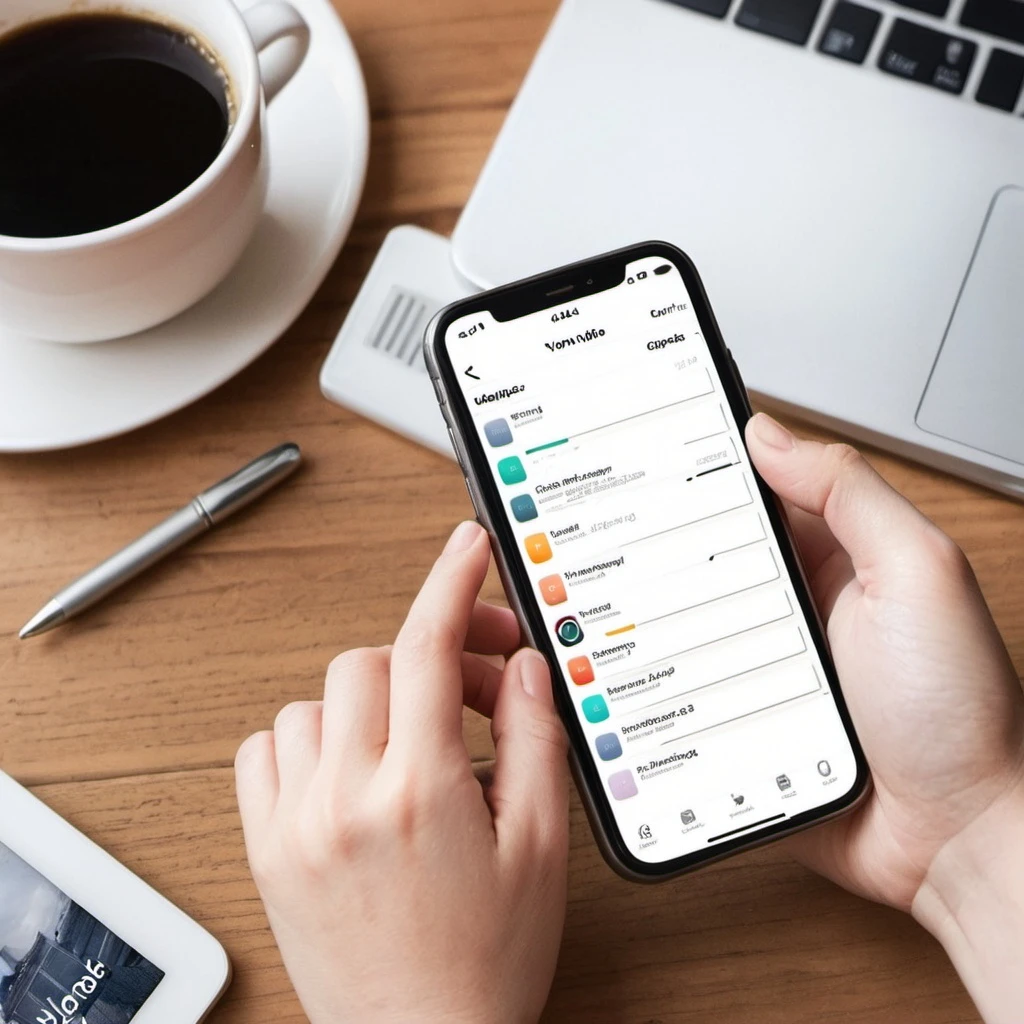In today’s fast-paced world, staying organized is essential for productivity and peace of mind. With the rise of smartphones and digital tools, managing tasks, schedules, and projects has become more efficient than ever. This article delves into the best apps for organizing your life, analyzing their features, comparing their benefits, and helping you choose the right one for your needs.
Why Use Organization Apps?
Organizational apps are more than just digital planners. They integrate task management, scheduling, reminders, and collaboration into a single platform, providing a streamlined approach to productivity.
Benefits of Using Apps for Organization
- Increased Productivity: Stay on top of tasks with reminders and prioritization tools.
- Time Management: Schedule your day effectively to maximize efficiency.
- Collaboration: Work seamlessly with teams using shared tasks and calendars.
- Stress Reduction: Reduce mental clutter by storing tasks and ideas digitally.
Key Features to Look for in an Organization App
Before diving into specific apps, it’s essential to understand what features make an app effective:
- User-Friendly Interface: Easy navigation and clean design are crucial.
- Cross-Platform Compatibility: Access your data on smartphones, tablets, and desktops.
- Customizable Options: Tailor the app to fit your specific needs.
- Integration Capabilities: Sync with other tools like calendars, email, and file storage.
- Offline Access: Manage your tasks even without an internet connection.
Top Apps for Organizing Your Life
1. Todoist
Todoist is a powerful task management app designed for simplicity and functionality.
Key Features:
- Create and organize tasks using projects and labels.
- Set recurring deadlines and reminders.
- Collaborate on tasks with team members.
- Integrate with apps like Google Calendar, Slack, and Outlook.
Pros:
- Minimalist design makes it easy to use.
- Gamification feature (Karma) motivates users to stay productive.
Cons:
- Free version has limited features.
Who Should Use It?
Individuals and small teams looking for a straightforward task management tool.
2. Notion
Notion combines note-taking, task management, and database organization into one versatile app.
Key Features:
- Create customizable pages for tasks, notes, and projects.
- Use templates for quick setup.
- Collaborative workspaces for team projects.
Pros:
- Extremely flexible and customizable.
- Ideal for both personal and professional use.
Cons:
- Steeper learning curve compared to other apps.
Who Should Use It?
People who want an all-in-one solution for personal organization and team collaboration.
3. Trello
Trello is a visual organization tool based on the Kanban method, perfect for project management.
Key Features:
- Create boards, lists, and cards to organize tasks visually.
- Attach files, set due dates, and add checklists.
- Integrate with tools like Slack, Google Drive, and Dropbox.
Pros:
- Simple drag-and-drop interface.
- Great for team collaboration.
Cons:
- Limited features in the free version.
Who Should Use It?
Teams and individuals managing multi-step projects or visual thinkers who prefer a board layout.
4. Google Keep
Google Keep is a lightweight app for capturing quick notes, reminders, and lists.
Key Features:
- Add color-coded notes with text, images, and voice recordings.
- Set location-based or time-based reminders.
- Sync seamlessly with Google Drive.
Pros:
- Simple and intuitive interface.
- Free with unlimited use.
Cons:
- Lacks advanced features for detailed task management.
Who Should Use It?
People looking for a quick and easy way to take notes and set reminders.
5. Microsoft OneNote
OneNote is a feature-rich note-taking app that doubles as an organizational tool.
Key Features:
- Create notebooks with sections and pages.
- Insert multimedia like images, videos, and audio.
- Sync across all devices with cloud integration.
Pros:
- Great for detailed note-taking and research projects.
- Free with Microsoft account.
Cons:
- Can feel overwhelming for new users.
Who Should Use It?
Students, professionals, and researchers who need extensive note-taking capabilities.
6. Evernote
Evernote is a comprehensive tool for capturing, organizing, and storing information.
Key Features:
- Save notes, web clips, images, and audio recordings.
- Search for text within images and PDFs.
- Organize notes with tags and notebooks.
Pros:
- Robust search functionality.
- Ideal for compiling and managing large amounts of information.
Cons:
- Paid plans can be expensive.
Who Should Use It?
Writers, researchers, and anyone managing large information databases.
Comparative Analysis of Organization Apps
| Feature | Todoist | Notion | Trello | Google Keep | Microsoft OneNote | Evernote |
|---|---|---|---|---|---|---|
| User-Friendliness | ⭐⭐⭐⭐⭐ | ⭐⭐⭐ | ⭐⭐⭐⭐ | ⭐⭐⭐⭐⭐ | ⭐⭐⭐ | ⭐⭐⭐ |
| Customization | ⭐⭐⭐ | ⭐⭐⭐⭐⭐ | ⭐⭐⭐⭐ | ⭐⭐ | ⭐⭐⭐⭐ | ⭐⭐⭐ |
| Collaboration | ⭐⭐⭐⭐ | ⭐⭐⭐⭐⭐ | ⭐⭐⭐⭐⭐ | ⭐⭐ | ⭐⭐⭐⭐⭐ | ⭐⭐⭐⭐ |
| Free Version | Limited | Generous | Limited | Unlimited | Unlimited | Limited |
How to Choose the Right App for You
1. Define Your Needs
Are you looking for a simple to-do list, a comprehensive planner, or a collaborative tool?
2. Test Multiple Options
Most apps offer free versions or trials. Experiment to find the one that aligns with your workflow.
3. Consider Integration
Choose an app that integrates seamlessly with tools you already use, such as calendars or file storage.
4. Evaluate Cost
While free apps are available, paid versions often offer premium features that may be worth the investment.
Future Trends in Organization Apps
As technology evolves, organizational apps are likely to integrate artificial intelligence (AI) for personalized recommendations and task automation. For instance, AI could analyze your habits to suggest optimal times for meetings or automatically prioritize urgent tasks.
Conclusion
The right organizational app can transform your daily routine, helping you achieve more with less stress. Whether you prefer the simplicity of Google Keep, the versatility of Notion, or the visual approach of Trello, there’s an app tailored to your needs.
Start small—download one app, explore its features, and incorporate it into your routine. Over time, you’ll notice improved productivity, reduced stress, and a greater sense of control over your life.
